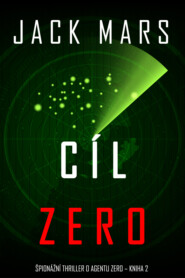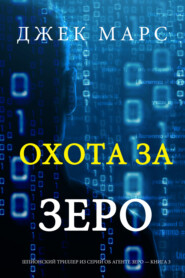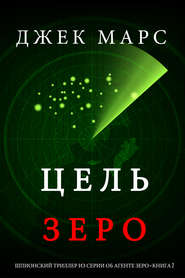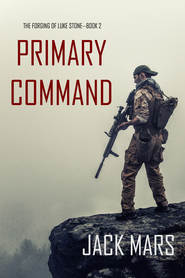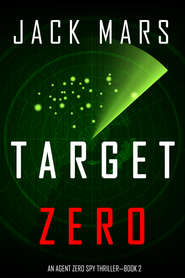По всем вопросам обращайтесь на: info@litportal.ru
(©) 2003-2025.
✖
House Divided
Настройки чтения
Размер шрифта
Высота строк
Поля
Trudy was his science and intelligence officer, and her office was ten feet from his. Trudy looked slim and beautiful as ever in a green boiled wool coat and blue jeans. She had done away with the big, round, owlish red-rimmed glasses she used to hide behind. Now her pretty blue eyes were front and center. Those eyes always seemed to watch Luke closely.
Trudy was a mystery wrapped in a conundrum. For years, Luke had relied on her for intel and scenario spinning. But things had gotten complicated. After the Mount Weather disaster, after the original SRT boss, Don Morris, was implicated in a plot to overthrow the United States, it turned out Trudy had been in the midst of a long affair with him. She was arrested and held without bail under suspicion of conspiracy to commit treason. That should be enough to disqualify any person from working in intelligence again. Even worse, after she got out of jail, she disappeared. Her whereabouts during the year she was missing was something she refused to talk about. Things were complicated.
Even so, Luke had hired her to work at the new SRT anyway. Trudy and Luke had had their own brief dalliance during the Ebola crisis, something they never talked about and seemed to have put in the past. And Trudy was valuable for her ability to gather intelligence, and to make sense of it when she did. She was, to Luke’s mind, the best in the business.
“Okay,” Luke said. “What do you have for me?”
“It’s something from Swann.”
“Swann is here?” Luke said.
She shook her head. “Of course not. It’s seven o’clock in the morning. But he’s awake and he sent it to me a few minutes ago. As you know, we’ve got a short list of people we’re keeping tabs on. One of these is a man named Mustafa Boudiaf.”
Trudy turned into her office and picked up her tablet off her desk. Luke followed her to the threshold. She scrolled through some information.
“Mustafa Boudiaf,” she said. “He lives in Baltimore. Sixty-three years old, American citizen, born in Algeria during the Algerian War of Independence. He came to this country when he was nine. He spent much of his childhood in Algiers, and witnessed atrocities committed by both the French and the FLN.”
“How do we know that?” Luke said.
Trudy shrugged. “We listen to his telephone conversations.”
Luke nodded. “Okay.”
“Boudiaf appears to be a fundraiser for Islamic extremist movements in North Africa. Swann has tracked him moving large sums of cryptocurrencies on the dark web, and to a lesser extent, across popular crypto trading platforms like Coinbase. Those platforms are unregulated, but easy enough to watch.”
“What’s his cover?” Luke said.
“He’s an Uber driver, works nights mostly, often late nights. We believe he meets with donors and other people in his networks under the pretense of picking up fares. Once in the car, they’re free to talk for as long as the ride lasts. Swann has tracked him taking fares up to Philadelphia, northern New Jersey, and New York. He routinely drives into DC and out to Norfolk.”
“All right,” Luke said. “I’ll bite. Why is he on our radar today?”
Trudy raised an index finger.
“This morning, at four twelve a.m., just minutes after the plane crash in the Sinai, Boudiaf answered a phone call. Swann said he’s been unable to trace back the call, but it came from outside the United States. The man who called spoke in Arabic. He kept it brief. He said a phrase that, translated into English, means, It is done. Then he hung up.”
“Interesting,” Luke said. “But probably not enough on its own.”
“That was one,” Trudy said. “The second thing is that Mustafa Boudiaf is preparing to leave the country. Three days ago, a moving van pulled up to his house in Baltimore. The workers took a lot of furniture, boxes, and electronic equipment out of the place and drove off with it. Instead of taking the stuff to another house, they took it to a storage facility – a storage facility outside Harrisburg, Pennsylvania.”
“Odd,” Luke said.
“Swann says that two nights ago, Boudiaf purchased one-way plane tickets for himself, and his family, to Algiers. The flight is tomorrow night out of JFK, assuming the snowstorm lets up. The house he lives in is a rental. Very soon, Mustafa Boudiaf is going to be gone, and it’ll be like he was never here.”
“What’s your gut?” Luke said.
Trudy nodded. “He was involved in taking down that plane. Maybe in a small way, maybe in a large way. At the very least, he had prior knowledge the attack was coming. Now he’s leaving.”
“I was just at the White House,” Luke said.
Trudy’s eyes flashed… something. Luke couldn’t tell what it was.
“It was a Situation Room meeting. There was a general there from the Joint Special Operations Command. He said they think this plane crash was a prelude to something larger, and was maybe even designed as a decoy. Could Boudiaf be leaving because the next attack happens here?”
“Wouldn’t you like to know?” Trudy said.
Luke nodded. “Let’s pick him up. Can we get an assist from local law enforcement?”
Trudy shook her head. Her hair bobbed the slightest amount. “Not a chance. Too risky. The Baltimore PD is trying to live down a lot of bad publicity right now. There’s no way we’ll get an arrest warrant based on what we have, especially not at a moment’s notice. So the cops up there won’t touch this – it’s exactly the kind of thing that if played wrong, looks like a human rights violation.”
“Well, let’s play it right then. How many people in Boudiaf’s house?”
“Seven.”
Luke’s shoulders slumped. “Seven people?”
Trudy nodded and raised her eyebrows. “Boudiaf has a young wife and a five-year-old daughter. He has an adult son from a previous marriage, who lives in the house with his own wife and young son. And Boudiaf’s adult nephew lives there, too.”
“So two children live in the house?” Luke said.
“Yes, and they’ll probably be home today because of the snow.”
Luke rolled his eyes. “Terrific. Plus two other adult males.”
“Yes,” Trudy said.
“What do we suppose Boudiaf is doing right now?” Luke said.
“Given the late hours he tends to keep, we suppose he’s sleeping.”
“Then let’s get on it. If you don’t mind, give Swann a kick in the butt for me and get him in here.”
* * *
“Big effort here. Big effort. Now’s the time, and you are the man.”
Ed Newsam lay on his back under the bench press machine. His tree trunk legs were draped in black sweatpants, and a black T-shirt hugged his broad chest. Words were stenciled across the T-shirt in white lettering: THE BEATINGS WILL CONTINUE. Once upon a time, the saying used to go “The beatings will continue until morale improves,” but Ed’s morale was doing just fine.
His MP3 player pumped old Public Enemy through expensive earphones. His body was soaked in early morning sweat – he’d been in here since 6:30. And he had the bench machine set to 380. One good rep, that’s all he asked. Better than good – pure, perfect, no hesitation on the press up, and nice, long, negative resistance on the way down. Something to get the sweat exploding out of his pores.
“Show me what you got,” he said to no one but himself, and pushed the bar. The weight slid upward, inch by inch. He held it for a second at the top, then began his slow descent. His arms trembled crazily. His wrists creaked like they would snap in half. The veins in his arms bulged. He could feel the blood rushing into his head – it felt like his brain might explode.
Finally, he let it go – the weight came down with a crash of metal.
Beautiful.
Ed was changing his lifestyle. His recent trip to Iran with Luke Stone had scared him a little bit. He and Stone had nearly died half a dozen times. Ed didn’t want to die – he wanted to live to see his two daughters grow up. But he was thirty-six years old, and not getting any younger. He hadn’t mentioned it to anyone, but the truth was there: he had felt old and slow on that mission.
And yet, he didn’t want to give up being in the field. During his time on the FBI Hostage Rescue Team, they had started using him as a trainer and a supervisor, rather than an agent and an operator. That was a wrong turn.
Trudy was a mystery wrapped in a conundrum. For years, Luke had relied on her for intel and scenario spinning. But things had gotten complicated. After the Mount Weather disaster, after the original SRT boss, Don Morris, was implicated in a plot to overthrow the United States, it turned out Trudy had been in the midst of a long affair with him. She was arrested and held without bail under suspicion of conspiracy to commit treason. That should be enough to disqualify any person from working in intelligence again. Even worse, after she got out of jail, she disappeared. Her whereabouts during the year she was missing was something she refused to talk about. Things were complicated.
Even so, Luke had hired her to work at the new SRT anyway. Trudy and Luke had had their own brief dalliance during the Ebola crisis, something they never talked about and seemed to have put in the past. And Trudy was valuable for her ability to gather intelligence, and to make sense of it when she did. She was, to Luke’s mind, the best in the business.
“Okay,” Luke said. “What do you have for me?”
“It’s something from Swann.”
“Swann is here?” Luke said.
She shook her head. “Of course not. It’s seven o’clock in the morning. But he’s awake and he sent it to me a few minutes ago. As you know, we’ve got a short list of people we’re keeping tabs on. One of these is a man named Mustafa Boudiaf.”
Trudy turned into her office and picked up her tablet off her desk. Luke followed her to the threshold. She scrolled through some information.
“Mustafa Boudiaf,” she said. “He lives in Baltimore. Sixty-three years old, American citizen, born in Algeria during the Algerian War of Independence. He came to this country when he was nine. He spent much of his childhood in Algiers, and witnessed atrocities committed by both the French and the FLN.”
“How do we know that?” Luke said.
Trudy shrugged. “We listen to his telephone conversations.”
Luke nodded. “Okay.”
“Boudiaf appears to be a fundraiser for Islamic extremist movements in North Africa. Swann has tracked him moving large sums of cryptocurrencies on the dark web, and to a lesser extent, across popular crypto trading platforms like Coinbase. Those platforms are unregulated, but easy enough to watch.”
“What’s his cover?” Luke said.
“He’s an Uber driver, works nights mostly, often late nights. We believe he meets with donors and other people in his networks under the pretense of picking up fares. Once in the car, they’re free to talk for as long as the ride lasts. Swann has tracked him taking fares up to Philadelphia, northern New Jersey, and New York. He routinely drives into DC and out to Norfolk.”
“All right,” Luke said. “I’ll bite. Why is he on our radar today?”
Trudy raised an index finger.
“This morning, at four twelve a.m., just minutes after the plane crash in the Sinai, Boudiaf answered a phone call. Swann said he’s been unable to trace back the call, but it came from outside the United States. The man who called spoke in Arabic. He kept it brief. He said a phrase that, translated into English, means, It is done. Then he hung up.”
“Interesting,” Luke said. “But probably not enough on its own.”
“That was one,” Trudy said. “The second thing is that Mustafa Boudiaf is preparing to leave the country. Three days ago, a moving van pulled up to his house in Baltimore. The workers took a lot of furniture, boxes, and electronic equipment out of the place and drove off with it. Instead of taking the stuff to another house, they took it to a storage facility – a storage facility outside Harrisburg, Pennsylvania.”
“Odd,” Luke said.
“Swann says that two nights ago, Boudiaf purchased one-way plane tickets for himself, and his family, to Algiers. The flight is tomorrow night out of JFK, assuming the snowstorm lets up. The house he lives in is a rental. Very soon, Mustafa Boudiaf is going to be gone, and it’ll be like he was never here.”
“What’s your gut?” Luke said.
Trudy nodded. “He was involved in taking down that plane. Maybe in a small way, maybe in a large way. At the very least, he had prior knowledge the attack was coming. Now he’s leaving.”
“I was just at the White House,” Luke said.
Trudy’s eyes flashed… something. Luke couldn’t tell what it was.
“It was a Situation Room meeting. There was a general there from the Joint Special Operations Command. He said they think this plane crash was a prelude to something larger, and was maybe even designed as a decoy. Could Boudiaf be leaving because the next attack happens here?”
“Wouldn’t you like to know?” Trudy said.
Luke nodded. “Let’s pick him up. Can we get an assist from local law enforcement?”
Trudy shook her head. Her hair bobbed the slightest amount. “Not a chance. Too risky. The Baltimore PD is trying to live down a lot of bad publicity right now. There’s no way we’ll get an arrest warrant based on what we have, especially not at a moment’s notice. So the cops up there won’t touch this – it’s exactly the kind of thing that if played wrong, looks like a human rights violation.”
“Well, let’s play it right then. How many people in Boudiaf’s house?”
“Seven.”
Luke’s shoulders slumped. “Seven people?”
Trudy nodded and raised her eyebrows. “Boudiaf has a young wife and a five-year-old daughter. He has an adult son from a previous marriage, who lives in the house with his own wife and young son. And Boudiaf’s adult nephew lives there, too.”
“So two children live in the house?” Luke said.
“Yes, and they’ll probably be home today because of the snow.”
Luke rolled his eyes. “Terrific. Plus two other adult males.”
“Yes,” Trudy said.
“What do we suppose Boudiaf is doing right now?” Luke said.
“Given the late hours he tends to keep, we suppose he’s sleeping.”
“Then let’s get on it. If you don’t mind, give Swann a kick in the butt for me and get him in here.”
* * *
“Big effort here. Big effort. Now’s the time, and you are the man.”
Ed Newsam lay on his back under the bench press machine. His tree trunk legs were draped in black sweatpants, and a black T-shirt hugged his broad chest. Words were stenciled across the T-shirt in white lettering: THE BEATINGS WILL CONTINUE. Once upon a time, the saying used to go “The beatings will continue until morale improves,” but Ed’s morale was doing just fine.
His MP3 player pumped old Public Enemy through expensive earphones. His body was soaked in early morning sweat – he’d been in here since 6:30. And he had the bench machine set to 380. One good rep, that’s all he asked. Better than good – pure, perfect, no hesitation on the press up, and nice, long, negative resistance on the way down. Something to get the sweat exploding out of his pores.
“Show me what you got,” he said to no one but himself, and pushed the bar. The weight slid upward, inch by inch. He held it for a second at the top, then began his slow descent. His arms trembled crazily. His wrists creaked like they would snap in half. The veins in his arms bulged. He could feel the blood rushing into his head – it felt like his brain might explode.
Finally, he let it go – the weight came down with a crash of metal.
Beautiful.
Ed was changing his lifestyle. His recent trip to Iran with Luke Stone had scared him a little bit. He and Stone had nearly died half a dozen times. Ed didn’t want to die – he wanted to live to see his two daughters grow up. But he was thirty-six years old, and not getting any younger. He hadn’t mentioned it to anyone, but the truth was there: he had felt old and slow on that mission.
And yet, he didn’t want to give up being in the field. During his time on the FBI Hostage Rescue Team, they had started using him as a trainer and a supervisor, rather than an agent and an operator. That was a wrong turn.






